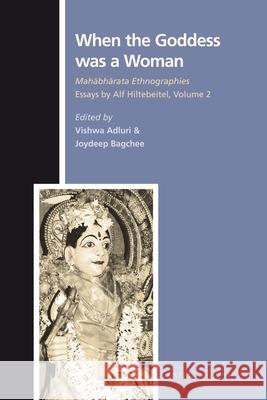When the Goddess Was a Woman: Mahābhārata Ethnographies - Essays by Alf Hiltebeitel, Volume 2 » książka
When the Goddess Was a Woman: Mahābhārata Ethnographies - Essays by Alf Hiltebeitel, Volume 2
ISBN-13: 9789004193802 / Angielski / Twarda / 2011 / 672 str.
Explicitly acknowledging its status as a strī-śūdra-veda (a Veda for women and the downtrodden), the Mahābhārata articulates a promise to bring knowledge of right conduct, fundamental ethical, philosophical, and soteriological teachings, and its own grand narrative to all classes of people and all beings. Hiltebeitel shows how the Mahābhārata has more than lived up to this promise at least on the ground in Indian folk traditions. In this three-part volume, he journeys over the overlapping terrains of the south Indian cults of Draupadī (part I) and Kūttāṇṭavar (part II), to explore how the Mahābhārata continues to be such a vital source of meaning, and, in part III, then connects this vital tradition to wider reflections on prehistory, sacrifice, myth, oral epic, and modern theatre. This two volume edition collects nearly three decades of Alf Hiltebeitel's researches into the Indian epic and religious tradition. The two volumes document Hiltebeitel's longstanding fascination with the Sanskrit epics: volume 1 presents a series of appreciative readings of the Mahābhārata (and to a lesser extent, the Rāmāyaṇa), while volume 2 focuses on what Hiltebeitel has called "the underground Mahābhārata," i.e., the Mahābhārata as it is still alive in folk and vernacular traditions. Recently re-edited and with a new set of articles completing a trajectory Hiltebeitel established over 30 years ago, this work constitutes a definitive statement from this major scholar. Comprehensive indices, cross-referencing, and an exhaustive bibliography make it an essential reference work. For more information on the first volume please click here.











